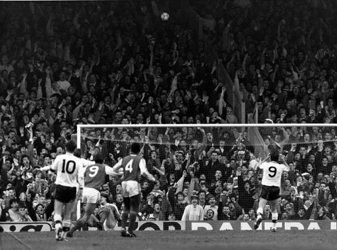In the week just gone, it would appear that the media finally woke up to the fact that supporters are charged well over the odds just to watch a game of football. They are justified in hitting Arsenal hard regarding admission pricing, but they’re also very selective in their condemnation, considering that every other London Premier League team charges a similar price. And it ain’t just a London thing, as, more often than not, our fans pay in the region of £50 for an away game regardless of geography. The cost for Arsenal fans at Man City this season was £55. Well that was a fair price but - £62? Hell no, that £7 was just too much for people to take.
This debate over ticket prices has come around two decades too late. To use our club as an example, in 1986 a seat in the East Lower at Highbury was £4.50 (with the option of standing in the terraces for even less). In the space of just twenty years, that same seat went up to £39, which was way above the average growth in wages during that time (wages didn’t even triple). In 1995 you could still get in to any game at Highbury for £10. I mention those facts because it’s important to have a sense of history when discussing this issue, and because what I can see football clubs doing is using the sneaky but smart supermarket tactic of perceived cost-reduction. In other words, hike up prices and then put them back down by a fraction and pretend the customer is making a saving. For example, even if Arsenal reduced prices for grade A games by £20, it would still be a rip-off at £42 (not that I think they will do that). The current price of £62 for the ‘cheap seat’ is about £50 more than what it should be, especially when you consider the millions that English clubs generate from television, advertising and merchandise.
I can hear the counter-argument, which is that players’ wages have skyrocketed in recent years; therefore the clubs have to charge more. Well yes, that is true, but it’s no consolation. The realisation that mediocre timewasters like Chamakh, Arshavin and Squillaci earn tens of thousands a week off the back of high admission pricing does not heal the wound. Knowing that’s where the money goes makes me even less inclined to fork out. Many Arsenal teams in the past would comprehensively whip this team today and yet to watch this lot costs so much more.
Wenger’s response to the question of fans paying such a high cost was to imply that if the ground is sold out then the fans must believe it is good value for money. Not only is that arrogant bullshit, which makes zero effort to understand the fans’ true feelings, but it also discounts the thousands of us who don’t go anymore - precisely because of the cost. I was the type of fan who made noise and sang for the team. But I won’t pay that price to follow football, and now Wenger wonders why the crowd don’t get behind the team (which he did moan about after the City game).
In any case, Wenger has a conflict of interest in relation to the question of ticket pricing. As someone who earns over £7 million a year off the back of such charges, he’s likely to defend the culture of football being expensive to follow.
Maybe it’s not too late for things to change. Nothing is ever set in stone. Germans have already proven to English fans that economic protest is effective. In 2010, Dortmund away fans boycotted Schalke '04 because the price had gone up from £13.50 to £22.00. They learnt from us that if you do nothing you’ll pay a very heavy price. Now it’s time for us to learn from them.
Matthew Bazell is the author of Theatre of Silence: The Lost Soul of Football.







